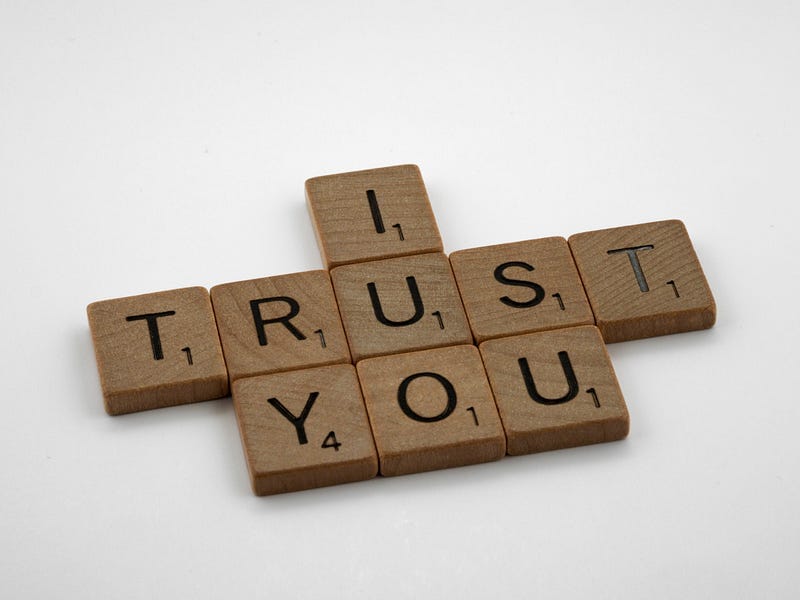When it comes to trust in government, there’s another question we need to consider
I’m attending FWD50 virtually this week, and a question keeps coming up (which also came up last year, and at many other conferences) is:

I’m attending FWD50 virtually this week, and a question keeps coming up (which also came up last year, and at many other conferences) is:
How do we get people to trust government?
But something I’ve been asking over and over again, that never gets much of a response, is the opposite question. It’s a question I think is just as important:
How do we get government to trust people?
Government operates from a place a mistrust. By default, we treat everyone we serve as if they are trying to defraud us, until they prove to us that they are “safe” by performing certain behaviours. Guilty until proven innocent.
We make them jump through complicated hoops to access services that should be available to everyone. We are gatekeepers of so many things. They can’t get the money until they do the forms. They can’t access the information until they prove their identity. They can’t have the tax credit until they show the receipts.
What if we defaulted to trusting people?
What if the narrative of government was the opposite? What if we told the people in Canada, “we will believe you until we have a reason not to”? What would that world look like? I can’t even imagine it. Mistrust often feels like the foundation of everything we do here in government.
By now, you might think I am some naïve dope. You might be thinking, “You can’t just give government money to anyone” (well, you can if you have Universal Basic Income, but that’s a different blog post.) “The world is full of dangerous, scammy people, you can’t just give everyone access to our systems.”
I agree. Some of these mistrust and oversight processes are necessary. Some people really are out there to defraud government.
But if we want people to trust us, we have to be willing to meet them halfway.
We have to make sure that we are only asking them to prove the things that are absolutely necessary. We have to recognize that we have an obligation to make sure that those necessary processes are things they are willing and able to do. We have to balance the risks of trusting people against the risks of not trusting them.
My own experience with government trust
I’ve spent my adult life between two countries: My home country of Canada, and the UK where I was an immigrant for several years.
The UK government isn’t perfect. There are a lot of horrible, inequitable policies and processes. Their benefits system and foreign policy in particular have mistrust at their core.
But … as a white middle class person, and the “right” kind of immigrant, I felt more trusted by the government in the UK than I have in Canada as a citizen, and I’ve been reflecting on why that is. Here are some examples:
- In the UK, I was able to access healthcare right as soon as I moved there without proving I had the right to it. All I needed was proof of my address to find a GP in my area.
In Canada, I was subjected to a 3-month waiting period before I could access healthcare, to make sure I wasn’t “abusing” the healthcare system. I was pregnant at the time, and I still can’t think or talk about how stressful this was without crying. - In the UK, I never had to submit a tax return; HMRC used the info they had on me to do it for me. I got an automatic tax refund every year without having to prove or do anything.
In Canada, although I’ve followed all the rules and filed my taxes every year, any email from the Canada Revenue Agency fills me with dread. The last email I got asked me to provide proof of my childcare expenses and cross-country move (even those they already had tax forms on record proving both.) - In the UK, the process of gaining the right to immigrate involved a couple of identity documents, an online form and a biometrics appointment. It took three days.
In Canada, the process of helping my partner immigrate involved 87 pages of evidence and forms. We needed a facebook support group to translate many of the questions for us. It took 15 months.
Here’s the thing: I don’t actually know if the UK government trusted me more than the Canadian government. But, by making it easier to access services and lowering the barriers to entry, and by only asking for information they really needed, it felt like I was more trusted. The UK government does the hard work to makes things simple, and that counts for a lot.
My experience is not data, it’s just one user experience of millions. Many in the UK will have a vastly different experience. But I do think that highlighting the importance of clear, usable services is applicable to other experiences.
Maybe government needs to show trust to gain trust
This is getting a bit long, so I wrote a part 2 on how I think government can show trust to earn trust.


Comments ()